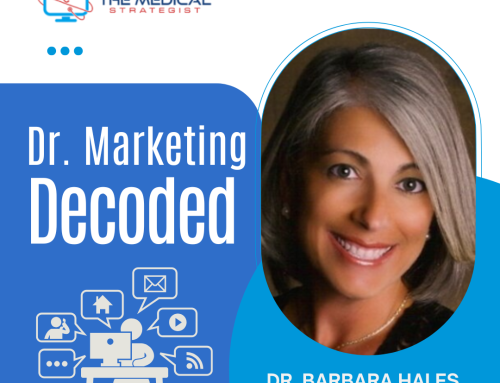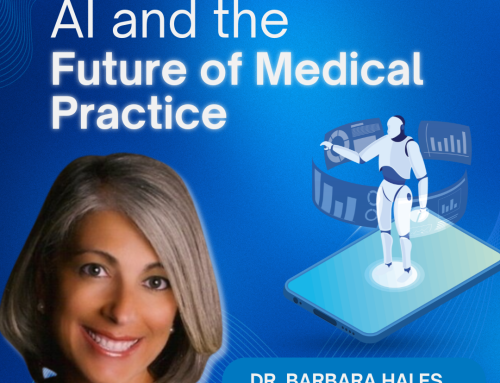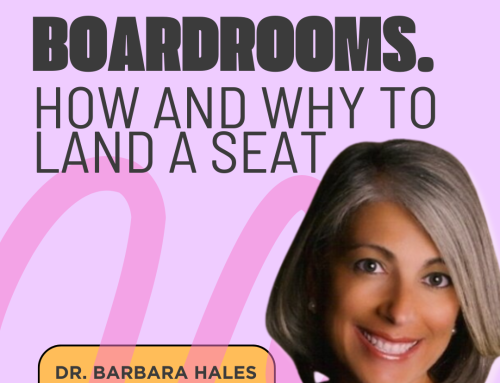Podcast: Play in new window | Download
Subscribe: RSS
In this episode, Barbara and MacKenzie discuss:
- The advantages of choosing Blubrry
- Tools and client data Blubrry offers
- Tips to think about when starting a podcast
Key Takeaways:
- Blubrry’s philosophy is your podcast should be yours and be in your control
- The more links and relevant information you include in your episodes and notes, the more people will be able to find you through search engines
- Consider being a guest on a podcast to test it out
“Don’t be afraid to start and then once you do, don’t be afraid to publish. You can always edit back later, and you can just get started now.” — MacKenzie Bennett
Transcription
020 MacKenzie Bennett-Using Podcasting to Market
Barbara Hales: Hi, this is your host, Dr. Barbara Hales, with another exciting episode of Marketing Tips For Doctors. Today we have MacKenzie Bennett. She’s a Marketing Service Coordinator and has been with Blubrry Podcasting since 2015. She is involved with the direction and implementation of Blubrry’s initiatives, which perfect the tools, breadth, and substance of content creation. MacKenzie manages Blubrry’s customer relations and outreach, including the lucrative affiliate program, which by the way, is available to all of you, even if you’re not just podcasters.
Now, some of you at this point may be saying, “Great, but what is Blubrry?” So for those of you who are uninitiated, Blubrry is a server that hosts podcasts. And at this point I’d like to welcome you to the show.
MacKenzie: Thanks so much, Barbara, for having me on.
Barbara Hales: MacKenzie, how did you come to work for Blubrry?
MacKenzie: I started about less than a year outside of college and had worked in college radio and majored in media and business and I had very vaguely known of Blubrry in the past and I just was looking for a job in my field and stumbled upon it. And here we are. I started out doing a little bit of everything and over the years have solidified what I do a little bit more, each and every year.
Barbara Hales: Well, I know that Blubrry has the largest podcast directory, with over 700,000 shows, and all that even though it was only founded in 2005. So, if I was looking as a newbie for podcasting, why would I choose Blubrry over all the other sites?
MacKenzie: The biggest reason to choose Blubrry is because of really our philosophy, that your podcast should be yours and be in your control. And all of our services focus on that idea. We encourage podcasters to use a WordPress website to, one, have a site for their show in general, which is great for an audience. But two, because you can get an RSS feed from a website that does not have our name in it or a competitor’s name in it. Essentially, you’re keeping your name with your podcast. And all of our services are based on the ability to create and go very quickly and publish easily and make sure that you are in charge of what you’re doing.
Barbara Hales: Another thing that I really appreciate about Blubrry, which I personally use, is that when I go to publish any of my podcast episodes, in addition to having it on my WordPress site, which is connected to my website, it also automatically populates Stitcher, Spotify, Google Play, Apple Play, iTunes, and any other site that I’m interested in participating in.
MacKenzie: Absolutely. All of our podcasters are able to put in the other directories that they’re in, in the PowerPress plugin, which is how you can publish off of WordPress directly. And you’re able to do as many as you’d like. So there’s really no constraints there for you.
Barbara Hales: In addition to publishing, what are some tools that Blubrry offers?
MacKenzie: So we have a great feature of our hosting, which is called No-Fault Hosting, in which you get an additional 25% of your storage upload capability each month, just in case there’s maybe a fifth Monday during the month or you just have an episode that’s longer than usual or something like that. That’s one of my favorite features is that you know you have a little bit of wiggle room there as opposed to others in which you would have to upgrade.
Barbara Hales: Well, that’s [crosstalk 00:04:08].
MacKenzie: Exactly.
Barbara Hales: What are some a client data that one could look forward to getting as a participant with Blubrry?
MacKenzie: Some of the best information I think is you have to be hosting with us because of course you can host with us and you get the professional stats included with that. Or you can host somewhere else and just get our statistics. But for this feature, the trending hourly data, you have to be hosting with us because we have to actually have the files. But within the first seven days of releasing an episode, you can look at how your downloads have accumulated hourly, which I think is really great to know if the first 24 hours are more important, or if it’s the first 48 hours, or if it’s three days after when you really promoted it on such and such social platform or something like that.
Or if someone mentioned it in a different podcast and you know exactly what day it was, you can track all of that information. And it’s really helpful to just be able to see the numbers grow as you get into a routine like a publishing schedule.
Barbara Hales: Well for sure, it’s really exciting to see the number of podcasts downloads grow. But what is really very helpful with the statistics is knowing what your efforts have brought. In other words, when you’re marketing your site, is it working? Isn’t it working? Which efforts are bringing in the most fruits, shall we say?
MacKenzie: Exactly.
Barbara Hales: And you also have show notes that you give for people that want to read what the podcast episode had so that by looking at it, you know if it’s something that you would like to learn more about. So as far as the site goes, and the tools, how have you seen the podcasts growing? Is there a particular niche or field that you see growing more than others? And do you see more people listening to podcasts than before? Is it growing in popularity? What have you seen trending?
MacKenzie: Yes, to a little bit of all of that. So, growth in podcast listenership has gone up. We’re going to have to put a link in the show notes, actually, for you to get the exact number, but I think about 30% in the past couple years, at least in the United States. I don’t know what the numbers are elsewhere, but we’ve seen a huge growth and people listening. And I think that’s just because apps are available on all types of phones and word of mouth, but also the show notes that you mentioned. That’s one of the reasons why I really encourage people to have a website, is because the more links and more relevant information you’re including with your episodes, the more people are going to be able to find you in those search engines. Because people will come up, like podcast episodes will come up in search engines for whatever it is that people are looking for.
If you write out a quick blog post for it, following some standard SEO practices. So that’s actually how Google is building their directory as well. They’ve been back and forth on how they function with podcasts in the past couple of years. They’ve done their own apps on any Android device in the past but fallen a little bit flat and moved on from that. And so now they’re just building their own directory based on what shows they can find via their own Google search. So if you’re following those best practices and people are able to find your show that way, you will end up in Google’s directory.
Barbara Hales: MacKenzie, our listeners and professionals may be saying, “Yeah, you know, podcasts really are a good marketing way to go,” or, “It’s a good way to get my message out to the people that need it most.” So for those people that are interested in starting a podcast, how do you suggest they plan their course of action even before they start the podcast?
MacKenzie: My suggestion, right off the bat, would be deciding a schedule. Do you want to release episodes on a regular basis, like every week or every other week or something like that? Do you want to do a season on perhaps a specific topic that you’re familiar with or just do seasons in general because it’s easier for you to do it all at once and then release on a separate schedule and say, “Hey, this content is available. We’ll be back in four months with another set of content for you to listen to.” I’d say that’s probably one of the biggest things to get yourself started.
And personally, I have a lot of doctor friends and I know that their schedules can completely change without really any control of their own. I think doing something like that where you’re able to release on your own schedule is a good idea. And then from there, making sure you have a solid website, even if it’s just very basic, but just a place for people to be able to find you and associate who you are and perhaps put up a little bit of information about you because, yes, while you are doctors, people want to be able to trust you online. So, any information like that is helpful. And then pick a host such as Blubrry, get your show set up. You can use our free tech support for that and then go from there.
Barbara Hales: Well, I must say, in terms of support, Blubrry is very, very user-friendly. And whenever there was a question that I had, the support has been right there and it was easy to speak to them about getting any issues I had resolved. Another thing that doctors may want to consider, in terms of addressing time constraints, is that every few episodes, you might want to consider having a guest podcast on your show so that it would relieve the time that it takes to do a show.
MacKenzie: That’s a great idea. Having a consistent batch of people that you’re comfortable reaching out to say, “Hey, will you jump in here for me for this week?” I think that’s a really great idea.
Barbara Hales: How would you suggest a person stand out from the crowd of podcasts that are shortly to be flooding the market?
MacKenzie: It’s a little difficult to say of how to stand out from the crowd because it’s usually based on the topic. But I think it’s easy to get the idea that it’s a little saturated out there in terms of podcast content. But really, I don’t think it is. I think you just need to hone in on your own voice and the message that you’re trying to spread, and if anything, listen to shows that you think are similar to yours or are inspiring yours and figure out what do you like about what they’re doing, or what do you hate, and do something that’s different to fill that gap, like fill that need that you’re trying to reach these people for in the first place. I think it’s just a little bit of research on the backend for that.
Barbara Hales: Well, podcasts definitely increase a person’s visibility and strength in their market, for sure. But for those of you who are contemplating starting a podcast but they’re not quite sure, yet they would like to get the benefits that a podcast has to offer, you might consider looking at the directory and seeing what podcasters are similar to yours in the type of services that you provide and become a guest on their show.
MacKenzie: That’s a great idea as well. Sometimes that’s a good way to start, or even just if you’re not fully committed and ready to start one.
Barbara Hales: Is it easy to get a directory from Blubrry in terms of the specialty or field that you’re in?
MacKenzie: So, we don’t necessarily provide a director that you can download or anything like that, but we do have them categorized. So, you can go into the health section that we have of our directory and you can do the same and the Apple one or any other one that you stumble upon, like Spotify or something like that.
Barbara Hales: Well, that’s great news. MacKenzie, are there any tips that you’d like to give our listeners today?
MacKenzie: I’d say, don’t be afraid to start, and then once you do, don’t be afraid to publish. You can always edit back later and you can just get started now. That’s the biggest hump for people to really get over, is just they’re scared to actually release anything.
Barbara Hales: Well, thank you so much for being on the show today. This has been MacKenzie Bennett with Dr. Barbara Hales on Marketing Tips For Doctors. It’s been a real pleasure. By the way, MacKenzie, what website can people go to either contact you or Blubrry to get more information?
MacKenzie: So if you just go to blubrry.com, and I’m going to spell that out. It’s B-L-U-B-R-R-Y.com. Blubrry without the Es. And you can reach me mackenzie@blubrry.com. It’s M-A-C-K-E-N-Z-I-E at B-L-U-B-R-R-Y.com. And we have Facebook and Twitter as well.
Barbara Hales: Well thank you so much for being with us today.
MacKenzie: Thank you.
Connect with MacKenzie Bennett:
Twitter: blubrry
Facebook: blubrry
Website: blubrry.com
LinkedIn: rawvoice
Connect with Barbara Hales:
Twitter: @DrBarbaraHales
Facebook: facebook.com/theMedicalStrategist
Business website:www.TheMedicalStrategist.com
Show website: www.MarketingTipsForDoctors.com
Email: Barbara@TheMedicalStrategist.com
Books:
YouTube: TheMedicalStrategist
LinkedIn: www.linkedin.com/in/barbarahales



